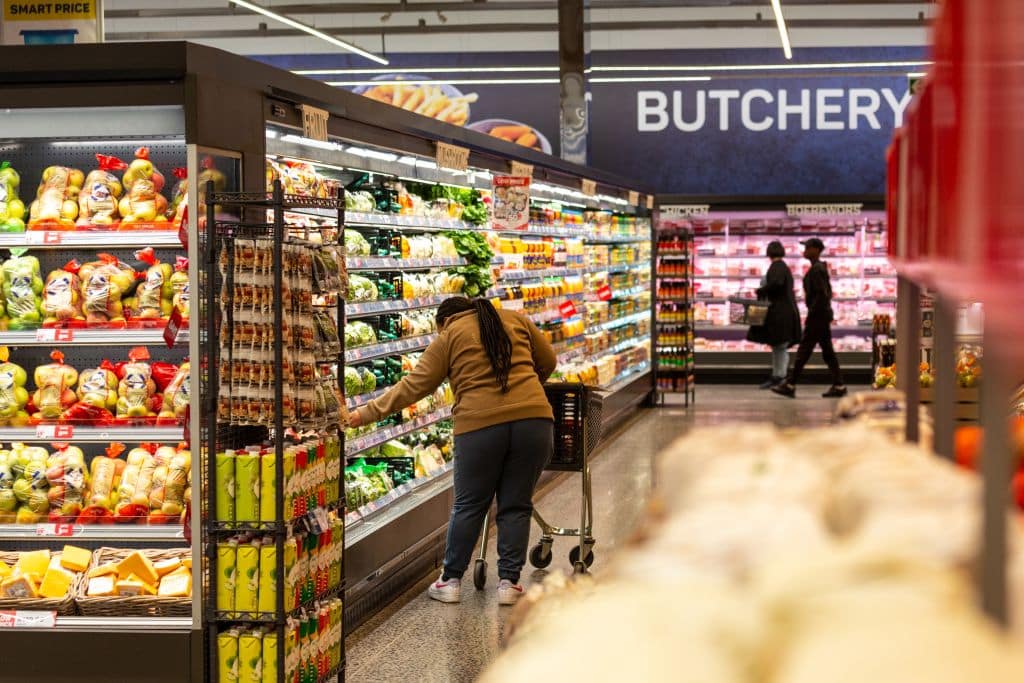Consumer research indicates that South Africans are suffering under high levels of inflation, with food products amongst the most affected. Consumer retailers are also feeling the knock-on effect. Loadshedding, repo rate increases and global politics are a confluence of pressures upon South Africans, which has seen many look to where non-essential expenses can be cut.
Since the inception of the Covid-19 pandemic, South Africans have been beleaguered by escalating cost-of-living increases, with food items experiencing considerable inflation. In response, consumers are altering their spending habits and consumption patterns, slashing non-essentials.
A monthly report known as the Household Affordability Index reveals that the average food basket of staple goods has surged by 10% from May 2022 to May 2023. Assembled by the Pietermaritzburg Economic Justice & Dignity Group (PMBEJD), the report demonstrates the shocking escalation in costs for consumers since the start of the pandemic, with the average cost of a household food basket per month rising by 57.4% from March 2020 to May 2023.
Consumers are not passively accepting this. Recent research by InfoQuest, an online research agency, suggests that luxuries such as television service subscriptions, gym memberships, and insurance were among the first expenses to be eliminated as South Africans strive to endure challenging economic times.
The squeeze is not solely affecting consumers but is also keenly felt further up the chain. Tiger Brands, the country’s largest food producer, recorded a 19% drop in share price by Wednesday after unveiling interim results. The two main factors propelling the decline were decreased sales volumes due to strapped consumers and loadshedding, with the only growth being spurred by price hikes.
“Tiger Brands’ performance… was affected by a challenging operating environment due to extended periods of loadshedding, while high levels of inflation and lower disposable income adversely impacted consumer behavior in terms of volumes and basket,” the report noted.
Other retailers such as retail conglomerate Pepkor observed similar losses, further emphasizing the consumer squeeze. Pepkor, which owns retailers Ackermans and Pep, saw its share price tumble 10%, noting in its investor presentation that consumers “have no choice but to prioritize spending on necessities to cope with high levels of inflation, particularly the increased cost of food and transport.”
Recent hikes in the South African Reserve Bank (SARB) repo rate have also put pressure on consumers, with a growing number of people resorting to credit facilities to get by. The increase marks the 10th hike by the SARB since 2022.
The diplomatic conflict between the United States and South Africa over the secretive docking of a Russian vessel last year, coupled with the ongoing electricity crisis, have also witnessed the South African Rand depreciate to record lows against the US dollar, further constraining the spending capacity of the South African consumer, especially concerning fuel costs.
With President Cyril Ramaphosa having tabled the Presidency’s budget vote today, he acknowledged the hardship of South Africans, particularly regarding the persistent loadshedding crisis. “We face a difficult winter ahead,” said Ramaphosa.
Some warmth might be on the horizon however, with Stats SA recording a decline in annual consumer inflation as of the end of April, this despite some notable increases in the Consumer Price Index basket, indicating there might be some relief for consumers in the months to come.
